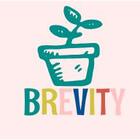
One of the hot topics in education is close reading, or "reading to uncover layers of meaning that lead to deep comprehension" (
"Closing in on Close Reading" by Nancy Boyles). In order to meet state standards, particularly in Common Core states, teachers are introducing close reading skills as early as Kindergarten.
Some approaches to close reading are:
Examining meaning thoroughly and analytically
Directing attention to the text, central ideas, and supporting details
Reflecting on meanings of individual words and sentences, and
Developing ideas over the course of the text (The Partnership for Assessment of Readiness for College and Careers, quoted by Nancy Boyles).
When I attend my professional development class twice a month, the instructor teases me because when she assigns a passage to read, she can trust me to
close read it. The first time she pointed it out, I was a little surprised. I've always thought of myself as "a slow reader," though a good reader. I have to go slowly so I can extract the fullest meaning from the text, be it
Pride and Prejudice or the book of John. Sometimes, I'm enjoying the author's techniques so much that I couldn't speed up if I wanted to. In a PD setting, this close-reading habit can get me into trouble because I may still be reading long after my colleagues have moved on. It can also cause me to fall behind on assignments. Still, I appreciated my instructor's assessment. Seeing my own close reading for what it was helped me to think about how to teach close reading strategies to my students.
What are some close reading strategies that work? Nancy Boyles outlines the following in her article:
Work with short texts
Aim for independence
Teach students to ask the questions
Focus on observing and analyzing
Boyles goes on to suggest the types of questions teachers need to teach students to ask. She also states that teachers need to be prepared to ask text-dependent questions while students are getting the hang of questioning the text for themselves.
What stands out to me as a Christian learning to teach close reading is the way the suggested text-dependent questions resemble the questions I ask when I read the Bible, particularly the more challenging passages.
For example, Boyles suggests teaching students to ask the following four basic questions:
1. What is the author telling me here?
2. Are there any hard or important words?
3. What does the author want me to understand?
4. How does the author play with language to add meaning?
If I'm reading a text like
Matthew 8:11-12, my mind is swarming with questions just like these. What important truth is Jesus teaching here? What does he mean by "many will come from east and west and recline at the table with Abraham, Isaac and Jacob"? This looks like a prophecy. Why is it tucked in here between hearing the Centurion's story and healing his servant? What does the prophecy mean? Who are the "sons of the kingdom" who will be cast out into the outer darkness? What bearing does this short passage have on the miracle Jesus performs? On my life?
In the case of the passage above, I was so motivated by my unanswered questions that I consulted a commentary and read up on one theologian's interpretation. More often, I'll seek answers by comparing the challenging passage to another in the Bible (one of my college professors reminded his students constantly that "the best commentary on the Word of God is the Word of God").
This is studying the Word. This is meditating on it. This is treasuring its wisdom as David urges believers to do in Psalm 119. In the public school setting, it's just close reading, and the text and the purpose will be different. Instead of seeking to know the author of the Bible more intimately, we are seeking to become better readers of any complex text. Sometimes we are also seeking to make proficient on a standardized test. Still, Christian teachers who themselves close-read short Bible passages every day of their lives are experienced analysts of the finest literature ever written.
Close reading--and Bible study--do take practice. So does teaching close reading. But don't put yourself in a box (like my "slow reader" one). Understand that you bring skills to the table. Ask God to unleash your close-reading superpowers.









